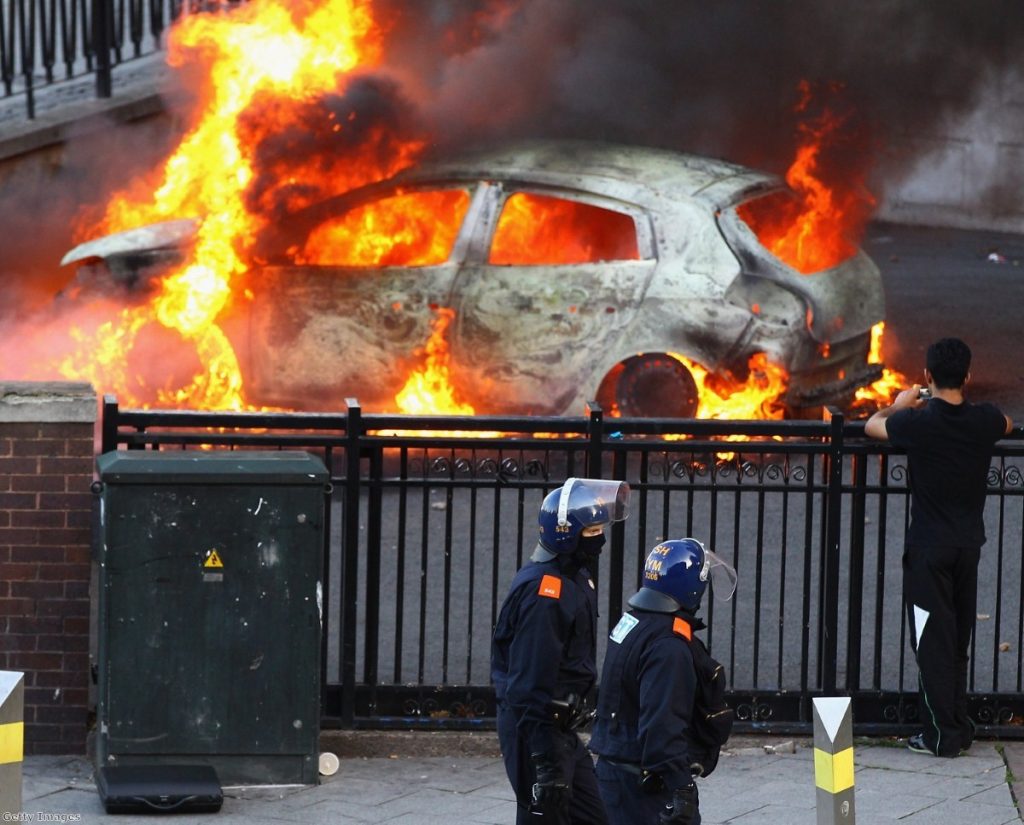The vigilantes: Public split on defence groups
By Ian Dunt Follow @IanDunt
The role of vigilantism was at the forefront of debate today, amid police complaints about their behaviour.
While many members of the public were sympathetic to the groups that have sprung up across the England to defends their communities from rioters, some warned that events were taking on a racial aspect.
There were mixed reports that the groups of predominantly white men patrolling parts of London, like Ealing, were chanting racial slogans, although these were played down by some observers.
In Birmingham, where three men were killed when a car was driven into them as they stood watch over their neighbourhood, the conflict involved mostly Asian groups standing guard against mostly Afro-Caribbean youths.
Meanwhile, the police feel the groups are presenting them with a new operational responsibility, rather than assisting them.
"What I don't need is these so-called vigilantes, who appeared to have been drinking too much and taking policing resources away from what they should have been doing – which is preventing the looting," said Steve Kavanagh, the Metropolitan police's deputy assistant commissioner, told Sky News.
"These are small pockets of people. They're frustrated, they're angry, and that's totally understandable. The sadness of those images through the night and the night before last will affect everyone.
"But the support that we need is to allow those officers to prevent looting and prevent crime. Ironically, when you see those images with no police available, the police are now having to go and do the vigilantes as well as the other problems that they've got. That needs to stop."
With police stretched thin across many parts of the country, television reports have been filled with local residents complaining that there was no police presence when rioters destroyed their property, a factor which has undoubtedly helped encourage the formation of the groups.





-01.png)